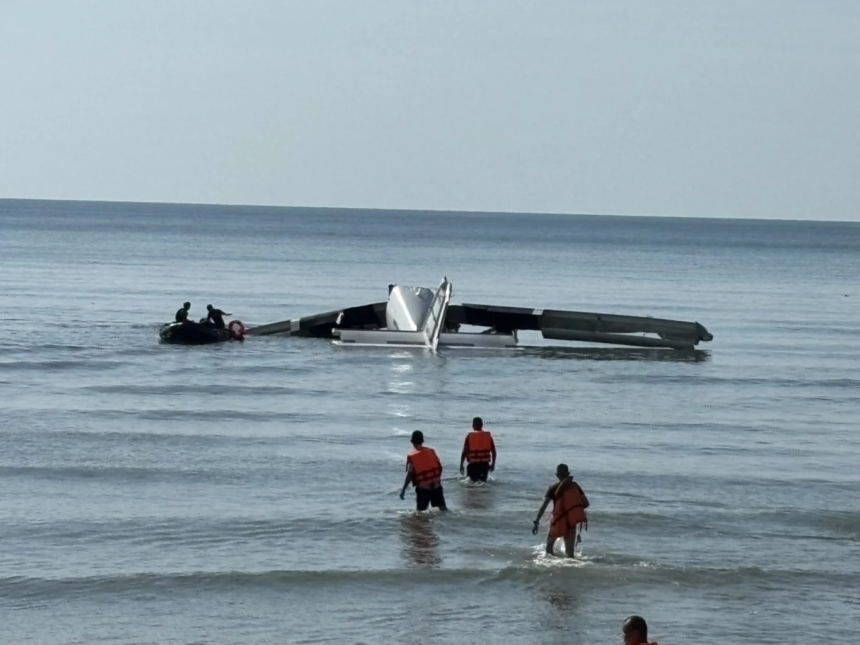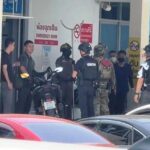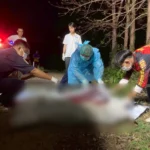A Royal Thai Police Viking DHC-6-400 Twin Otter plane crashed into the Gulf of Thailand near Hua Hin Airport on Friday. All six officers on board lost their lives. The crash happened at 8:15 AM during a test flight connected to a parachute training drill.
The aircraft, part of a fleet delivered in 2020, became unstable soon after takeoff. It crashed into the sea about 100 meters from the shore, close to the Baby Grande Hua Hin Hotel in Cha-am, Phetchaburi. The wreckage split in two on impact, leaving no survivors.
Those on board were identified as Pol Col Prathan Khiewkham, Pol Lt Col Panthep Maneewachirangkul, Pol Capt Chaturong Wattanapaisarn, Pol Lt Thanawat Mekprasert, Pol L/Cpl Jeerawat Maksakha, and Pol Sgt Maj Prawat Pholhongsa. Early reports suggested Pol Capt Chaturong survived, but he died later from his injuries.
National Police Chief Pol Gen Kitrat Phanphet commended the pilots for guiding the aircraft away from populated areas and toward the sea, likely preventing a bigger disaster. Witnesses described hearing a loud engine noise, possibly an explosion, right before the crash.
The Twin Otter had recently been serviced, and investigators are looking into whether a technical fault played a role. The plane’s black box has been recovered, and the wreckage has been pulled from the water for a full investigation.
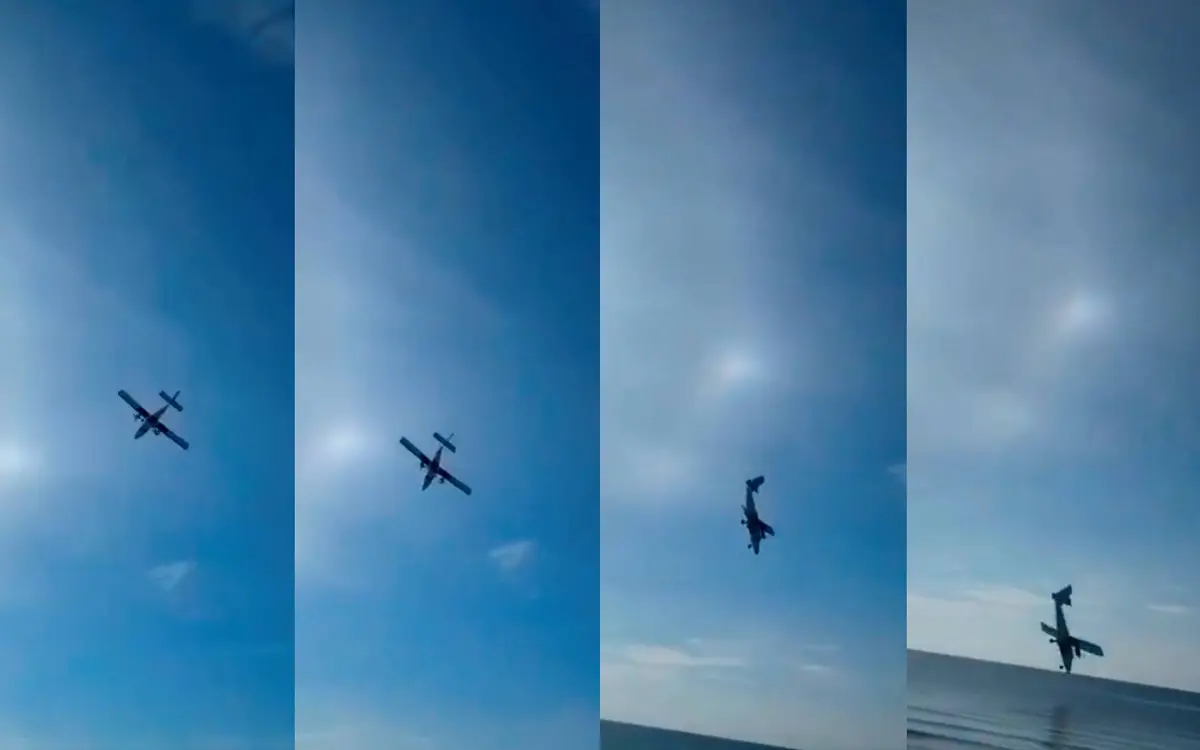
Past Aviation Accidents
This tragedy adds to a series of aviation accidents that have troubled Thailand for decades. In 1998, a Thai Airways Airbus A310 crashed in Surat Thani, claiming 101 of 146 lives. In 2007, One-Two-Go Airlines Flight 269, a McDonnell Douglas MD-82, crashed in Phuket during bad weather and pilot error, killing 90 people.
Thailand’s aviation sector has faced criticism for weak regulations and poor oversight. In 2015, the International Civil Aviation Organisation (ICAO) flagged Thailand for not meeting global safety standards, which led to a temporary downgrade by the U.S. Federal Aviation Administration.
Thailand made changes by 2017, but problems remain. In 2018, a Bangkok Airways plane slid off a runway, showing these issues haven’t disappeared. Fast tourism growth has put pressure on air traffic control and pilot training, and experts say stronger safety rules are needed.
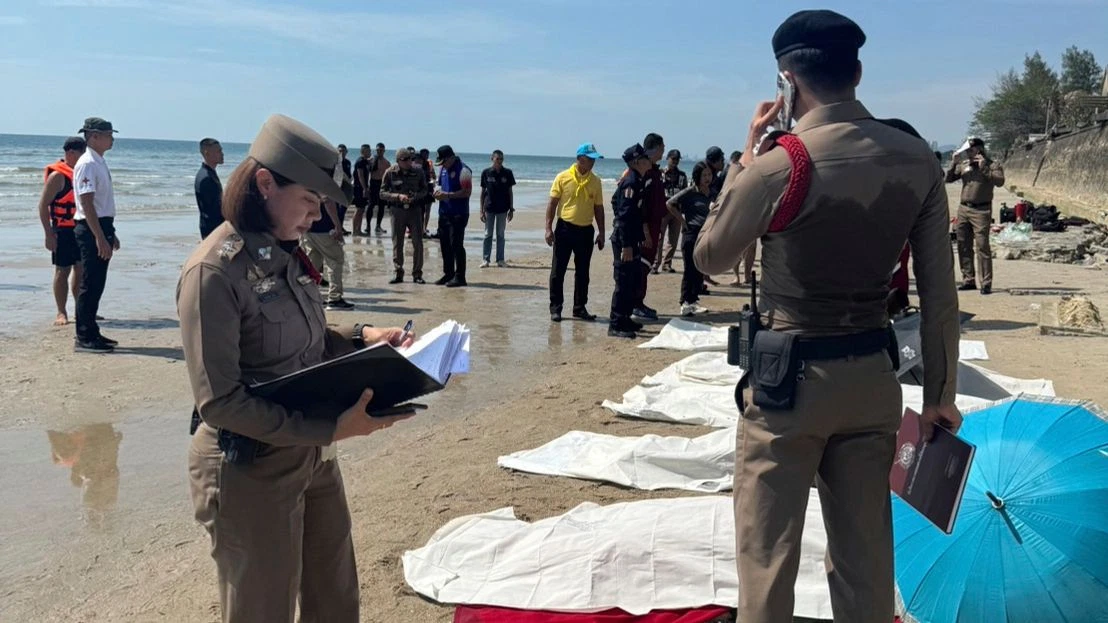
Probe into Hua Hin Crash
The Hua Hin crash has triggered public calls for a clear investigation and for those responsible to be held accountable. Aviation analyst Dr. Somsak Chaiyaporn said the Twin Otter is usually dependable, but its age and upkeep need careful review.
“Thailand should focus on updating its fleet and giving better training,” he said. Locals were shaken by the crash. Fisherman Somchai Rattanaporn described the impact as sounding like thunder along the coast.
Police leaders have promised full transparency in their probe, with initial findings expected soon. The tragedy has brought sadness to Hua Hin, a well-known beach town and tourist spot. Memorials are planned for the officers, and authorities have pledged support for their families.
This crash highlights Thailand’s need to fix long-standing safety problems in its aviation industry. Past disasters in 1998 and 2007 exposed gaps in pilot training and maintenance checks.
Although the ICAO’s warning in 2015 sparked some reforms, experts believe further action is needed to keep air travel safe. As Thailand’s skies get busier, stronger safety measures are essential for protecting lives and keeping the public’s trust.
Related News:
Chinese Travel Agents Discounts Flights to China By Up to 50%

Geoff Thomas is an award winning journalist known for his sharp insights and no-nonsense reporting style. Over the years he has worked for Reuters and the Canadian Press covering everything from political scandals to human interest stories. He brings a clear and direct approach to his work.




